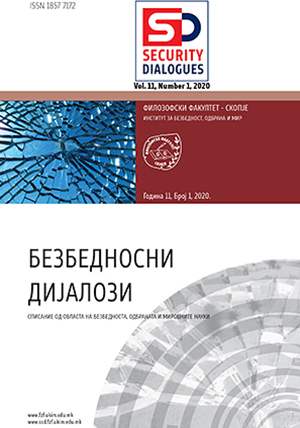Global Conflict Intervention: Cures or Iatrogenic Diseases?
Global Conflict Intervention: Cures or Iatrogenic Diseases?
Author(s): Hakan WibergSubject(s): Ethics / Practical Philosophy, Health and medicine and law, Globalization
Published by: Филозофски факултет, Универзитет "св. Кирил и Методиј"
Keywords: conflict; globalization; intervention; iatrogenic effects
Summary/Abstract: In medical language, an iatrogenic disease is one that resulted from the treatment of some other disease. About one sixth of the hospital patients in Scandinavia lie there for diseases that they have gotten from the treatment, often at the hospital. This may sound bad, but actually signifies a great improvement: it is only a century ago since the probability of survival if taken to hospital became greater than if not. There are several factors behind this development. Medical practice has improved, with the idea of Ignaz Semmelweiss that medical staff should wash their hands between different operations as a first major breakthrough (it spread quicker among midwifes than among his doctor colleagues). Medical research and theory has taken great steps ahead, dramatically improving the prognoses of formerly lethal diseases. Medical practice and medical theory have moved from being virtually separate fields to close interaction. Medical ethics has given increasing emphasis to the illegitimacy of the doctor putting his own interests before those of the patient. So while there is still a long road to travel in medicine, the road already travelled is impressive. This paper discusses the effects of attempts by international intervention to “cure” domestic conflicts in various countries in what has been described as an age of globalization. Has any progress been made that is comparable to that in medicine? What can we expect? What results do we actually find?
Journal: Bezbednosni dijalozi
- Issue Year: 11/2020
- Issue No: 1
- Page Range: 35-44
- Page Count: 10
- Language: English

